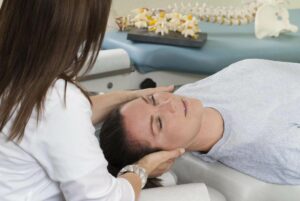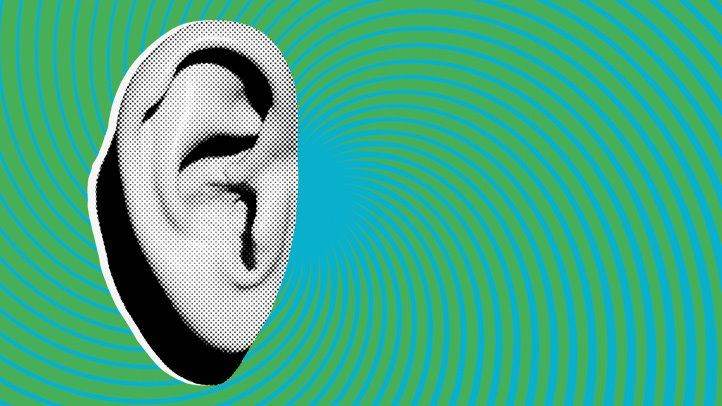Do you suffer from vertigo? If so, you know how debilitating it can be. Fortunately, there is help! In this blog post, we will discuss physical therapy for vertigo and how it can help you overcome your symptoms. Physical therapy is a safe and effective treatment for vertigo that has been shown to improve symptoms in many patients. Keep reading to learn more about how PT can help you feel better fast!
Contents
What is Vertigo?
Vertigo is a sensation of spinning or whirling that occurs as a result of abnormalities in the vestibular system. The vestibular system is the part of the inner ear that helps control balance and orientation. Vertigo can be caused by a number of factors, including head injury, ear infection, and Ménière’s disease. It can also be caused by problems with your central nervous system, such as multiple sclerosis (MS).
Vertigo is characterized by the feeling that you or your surroundings are spinning. In some cases, vertigo may also be associated with nausea and vomiting, dizziness, and extreme fatigue. The symptoms of vertigo can be caused by a number of different factors and may vary in severity.
Treatment for Vertigo

If you are experiencing the symptoms of vertigo, there is no need to panic. It is a relatively common condition that will often improve on its own within a few weeks or with treatment. If your vertigo lasts longer than a week or so, however, it’s important to see a doctor.
The most effective treatment for vertigo is usually physical therapy, which involves exercises and techniques to help relieve your symptoms by strengthening the muscles in your body that are responsible for balance and orientation. Other treatments can include medication, such as steroids and antihistamines, as well as dietary changes and lifestyle modifications to help alleviate some of the symptoms associated with vertigo.
If you are suffering from vertigo, it’s important to consult with a doctor or physical therapist in order to find the most effective treatment for your condition. With the right approach, you can overcome vertigo and get back to enjoying your life again!
Can Physical Therapy Cure Vertigo?
 To overcome vertigo, physical therapy can help. This natural treatment focuses on helping your body find balance by stimulating the vestibular system and improving your response to it. By utilizing different exercises, you can train your ears, eyes, muscles and joints to work together in harmony.
To overcome vertigo, physical therapy can help. This natural treatment focuses on helping your body find balance by stimulating the vestibular system and improving your response to it. By utilizing different exercises, you can train your ears, eyes, muscles and joints to work together in harmony.
One type of physical therapy for vertigo is vestibular rehabilitation therapy (VRT), which can help improve your balance and reduce symptoms. VRT may include exercises such as:
- Eye movement exercises – These exercises can be helpful in reducing the intensity of the vertigo sensations you feel, as well as promoting better coordination and balance.
- Exercises for your neck – Certain movements or positions of your neck can trigger vertigo, so physical therapy often includes targeted exercises that help to strengthen and stabilize this area of the body.
- Postural training – Many people with vertigo experience symptoms when they are standing or sitting in certain positions, so your therapist may recommend that you practice certain postural exercises to help improve your balance.
- Vestibular rehabilitation – This technique focuses on helping to retrain the brain and body to respond appropriately to situations that would normally trigger vertigo symptoms. Your therapist may use a combination of different therapies, such as repositioning manoeuvres or balance training, to help you achieve this goal.
While vertigo can be a challenging condition to live with, physical therapy is often an effective tool in overcoming these symptoms and improving your overall quality of life. If you are experiencing symptoms of vertigo, speak to your doctor or therapist about the benefits of physical therapy for treating this condition.
Other Natural Techniques To Cure Vertigo

In addition to traditional physical therapy techniques, there are other natural remedies for vertigo that can help reduce symptoms and improve balance. These include:
Acupuncture
This ancient Chinese practice uses thin needles to stimulate specific points in your body and has been shown to reduce dizziness and improve balance.
Biofeedback
By practising deep breathing, muscle relaxation and other techniques in a controlled environment, you can train your brain to better regulate the signals it sends to your ears and other parts of the body.
Dietary Changes
Certain foods are known to trigger episodes or worsen symptoms of vertigo, including alcohol, caffeine, chocolate, and certain food preservatives. Limiting your intake of these foods may help improve your symptoms. Additionally, making sure that you’re getting enough nutrients, such as vitamin B12 and magnesium, can also help reduce dizziness.
Whether you choose to try traditional physical therapy techniques or natural remedies, it is important to speak with your doctor first to ensure that these treatments are right for you. With the help of a skilled therapist, you can overcome vertigo and restore balance in your life.
How Long Does It Take To Cure Vertigo?
Curing vertigo is a very personal process that depends on how severe your symptoms are and how long it has been going on. For most people, the condition will start to improve shortly after treatment begins. Many who receive medical care for their vertigo report significant improvement in as few as five days. However, it may take several months for you to fully recover from your condition if it has been going on for a long time.
Who Is Affected By Vertigo More?
Vertigo affects over 30 million people every year in the United States alone. Vertigo can be experienced by anyone from any age group, gender and race. However, some individuals are more susceptible to vertigo than others. For instance, women tend to experience vertigo at higher rates because of a few reasons:
1.) Women are twice as likely to have migraines than men, and vertigo can be the result of a migraine.
2.) Women have smaller ear canals which create more pressure in the inner ear, making it more likely for them to experience vertigo.
3.) Menopause causes hormonal changes that create an imbalance within the body, increasing one’s chances of having an episode of vertigo.
In addition to women, there are a few more factors that can increase one’s susceptibility to vertigo:
1.) People who have had an illness or injury in the past that has affected their middle ear.
2.) Patients with allergies may experience vertigo from inflammation of the inner ear canal or sinuses.
3.) People who have a history of chronic stress or anxiety are more likely to experience vertigo.
The good news is that, with the help of a physical therapist, individuals can overcome vertigo and live symptom-free lives.
Steps To Take When You Are Experiencing Vertigo
If you are struggling with vertigo, there are things that you can do to help manage it immediately. These are:
1. Try to keep your head still, and get into a position where you can feel the ground beneath you and which allows proper blood flow.
2. Avoid sudden movements and practice slow, controlled movements instead.
3. Find ways to relax your body – try deep breathing exercises or meditation to help calm your nervous system and stabilize your balance.
4. If your vertigo is caused by a medical condition, work with your doctor to come up with a treatment plan that can help you manage it over the long term. This may include physical therapy or changes to your diet and lifestyle.
Ultimately, the best way to overcome vertigo is to take steps to strengthen your body and improve your overall health.
Conclusion
In conclusion, in order to overcome vertigo with physical therapy, it is important to seek out a professional therapist who can help you identify the cause of your vertigo, and provide the right exercises that will help alleviate your symptoms. By following these steps, you are on your way to a healthier and happier life free from the burden of debilitating vertigo. You can also contact us for professional help.
Physical Therapy help patients recover from pain. If you’re experiencing Back pain, Shoulder pain, Knee pain, Neck pain, Elbow pain, Hip pain, or Arthritis pain, a physical therapist at MantraCare can help: Book a physiotherapy session.


